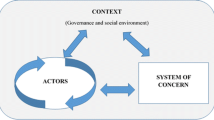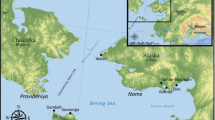Abstract
The Trent-Severn Waterway in central Ontario, Canada, is a large inland water system. It is managed for a broad range of stakeholders with different needs and expectations, creating a complex management context. Although variations in water levels occur, extreme low water-level events may increase in the future due to climate change, challenging management practices, in addition to requiring adaptation to reduce impacts. A modified policy Delphi was used to generate and evaluate ideas related to historical and future water-level impacts and adaptations. The paper presents the perspectives of three groups—cottagers and homeowners (CH), government (G), and industry and business (IB)—on their experiences with historic low water-levels, as well as their perspectives on future impacts and adaptations using two water-level scenarios: a moderate decrease of 25 cm and a more severe 50 cm decline. Shared impacts and adaptations (individual and collective) were identified along with those that were unique to a group. The likelihood of and consensus on potential impacts and most adaptations increased with the severity of water-level reduction. All groups indicated a higher likelihood of using collective rather than individual adaptations with the severe scenario, and in some cases, their contacts for assistance with adaptation broadened. While the modified policy Delphi requires significant effort by the analyst and respondents, it provides a useful framework for generating and analyzing perceptions and preferences of diverse stakeholders.


Similar content being viewed by others
References
Angel JR, Kunkel KE (2010) The response of Great Lakes water levels to future climate scenarios with an emphasis on Lake Michigan-Huron. J Great Lakes Res 36:51–58. doi:10.1016/j.jglr.2009.09.006
Bates BC, Kundzewicz ZW, Wu S, Palutikof JP (eds) (2008) Climate change and water. Technical Paper of the Intergovernmental Panel on Climate Change. IPCC, Geneva
Berkhout F (2005) Rationales for adaptation in EU climate change policies. Clim Pol 5:377–391
Berkhout F, Hertin J, Gann DM (2006) Learning to adapt: organisational adaptation to climate change impacts. Clim Chang 78:135–156. doi:10.1007/s10584-006-9089-3
Birkmann B, Garschagen M, Kraas F, Quang N (2010) Adaptive urban governance: new challenges for the second generation of urban adaptation strategies to climate change. Sustain Sci 5:185–206
Boyer TH, Overdevest C, Christiansen L, Ishii SKL (2012) Expert stakeholder attitudes and support for alternative water sources in a groundwater depleted region. Sci Total Environ 437:245–254
Canada P (2007) A study of the past, present and future of water management on the Trent-Severn waterway national historic site of Canada. Water Management Program, Ottawa
Canada P (2011) Trent-Severn waterway national historic site of Canada. Water Management Program, Ottawa
Chu C (2011) Vulnerability indicators for Lake Simcoe and the wetlands, streams and rivers within the Lake Simcoe watershed. Lake Simcoe Watershed Sectoral Vulnerability Assessments, Water Sector. Ontario Centre for Climate Impacts and Adaptation Resources (OCCIAR), Sudbury
de Loë RC (1995) Exploring complex policy questions using the policy Delphi: a multi-round, interactive survey method. Appl Geogr 15:53–68. doi:10.1016/0143-6228(95)91062-3
de Loë RC, Kreutzwiser R, Moraru L (2001) Adaptation options for the near term: climate change and the Canadian water sector. Glob Environ Chang 11(3):231–245. doi:10.1016/S0959-3780(00)00053-4
Dessai S, Hulme M (2004) Does climate adaptation policy need probabilities? Clim Pol 4:107–128
Dessai S, Lu X, Risbey JS (2005) On the role of climate scenarios for adaptation planning. Glob Environ Chang 15:87–97. doi:10.1016/j.gloenvcha.2004.12.004
Disch J, Kay P, Mortsch L (2012) A resiliency assessment of Ontario’s low water response plan under a climate induced low-flow scenario. Can Water Resour J 37(2):105–123. doi:10.4296/cwrj3702916
Dovers S, Hezri R (2010) Institutions and policy processes: the means to the ends of adaptation. WIREs Clim Chang 1:212–231. doi:10.1002/wcc.29
Field C, Mortsch L, Brklacich M, Forbes D, Kovacs P, Patz JA, Running SW, Scott MJ (2007) Chapter 14: North America. In: Parry M, Costanza O, Palutikoff J, van der Linden PJ, Hanson CE (eds) Climate change 2007: impacts, adaptation and vulnerability, Contribution of working group II to the fourth assessment report of the intergovernmental panel on climate change. Cambridge University Press, Cambridge, pp 617–652
Franklin KK, Kart JK (2007) Idea generation and exploration: benefits and limitations of the policy Delphi. Innov High Educ 31:237–246. doi:10.1007%2Fs10755-006-9022-8
Gordon T, Pease A (2006) RT Delphi: an efficient, “round-less” almost real time Delphi method. Technol Forecast Soc Chang 73(4):321–333. doi:10.1016/j.techfore.2005.09.005
Howe PD, Yarnal B, Coletti A, Wood NJ (2013) The participatory vulnerability scoping diagram: deliberative risk ranking for community water systems. Ann Assoc Am Geogr 103(2):343–352. doi:10.1080/00045608.2013.754673
Jenni K, Graves D, Hardiman J, Hatten J, Mastin M, Mesa M, Montag J, Nieman T, Voss F, Maule A (2014) Identifying stakeholder-relevant climate change impacts: a case study in the Yakima River Basin, Washington, USA. Clim Chang 124:371–384. doi:10.1080/00045608.2013.754673
Jones RN, Patwardhan A, Cohen S, Dessai S, Lammel A, Lempert R, Mirza M, von Storch H (2014) Chapter 2. Foundations for decision making. In: Field CB, Barros VR, Dokken DJ, Mach KJ, Mastrandrea MD, Bilir TE, Chatterjee M, Ebi KL, Estrada YO, Genova RC, Girma B, Kissel ES, Levy AN, MacCracken S, Mastrandrea PR, White LL (eds) IPCC WGII AR5. Cambridge University Press, Cambridge, United Kingdom/New York
Lebel L, Grothmann T, Siebenhüner B (2010) The role of social learning in adaptiveness: insights from water management. Int Environ Agreements Polit Law Econ 10:333–353. doi:10.1007%2Fs10784-010-9142-6
Lemieux CJ, Scott DJ (2011) Changing climate, challenging choices: identifying and evaluating climate change adaptation options for protected areas management in Ontario. Canada Environ Management 48(4):675–690. doi:10.1007/s00267-011-9700-x
Lennox J, Proctor W, Russell S (2011) Structuring stakeholder participation in New Zealand’s water resource governance. Ecol Econ 70(7):1381–1394. doi:10.1016/j.ecolecon.2011.02.015
Linstone HA, Turoff M (eds) (2002) The Delphi method: techniques and applications. New Jersey Institute of Technology, Newark
MacRitchie S, Stainsby E (2011) Lake Simcoe watershed climate change vulnerability assessment. Water quality and quantity. Lake Simcoe Watershed Sectoral Vulnerability Assessments, Water Sector. Ontario Centre for Climate Impacts and Adaptation Resources (OCCIAR), Sudbury
Marx SM, Weber EU, Orlove BS, Leiserowitz A, Krantz DH, Roncoli C, Phillips J (2007) Communication and mental processes: experiential and analytic processing of uncertain climate information. Glob Environ Chang 17(1):47–58. doi:10.1016/j.gloenvcha.2006.10.004
Mastrandrea MD, Heller NE, Root TL, Schneider SH (2010) Bridging the gap: linking climate-impacts research with adaptation planning and management. Clim Chang 100:87–101. doi:10.1007%2Fs10584-010-9827-4
Millerd F (2011) The potential impact of climate change on Great Lakes international shipping. Clim Chang 104:629–652. doi:10.1007/s10584-010-9872-z
Mortsch LD, Ingram J, Hebb A, Doka S (eds) (2006) Great Lakes coastal wetland communities. Vulnerability to climate change and response to adaptation strategies. Final report. Climate Change Impacts and Adaptation Program (CCIAP). Environment Canada, Toronto
Noble I, Huq S, Anokhin Y, Carmin J, Goudou D, Lansigan F, Osman-Elasha B, Villamizar A (2014) Chapter 14. Adaptation needs and options. In: Field CB, Barros VR, Dokken DJ, Mach KJ, Mastrandrea MD, Bilir TE, Chatterjee M, Ebi KL, Estrada YO, Genova RC, Girma B, Kissel ES, Levy AN, MacCracken S, Mastrandrea PR, White LL (eds) IPCC WGII AR5. Cambridge University Press, Cambridge, United Kingdom/New York
Parks Canada (2008) It’s all about the water. Report of the panel on the future of the Trent-Severn waterway a national historic site of Canada. Parks Canada, Ottawa
Peterson GD, Cumming GS, Carpenter SR (2003) Scenario planning: a tool for conservation in an uncertain world. Conserv Biol 17(2):358–366
Schwartz R, Deadman PJ, Scott D, Mortsch LD (2004) GIS modelling of climate change impacts on a Great Lakes shoreline community. J Am Water Resour Asssoc 40(3):647–662. doi:10.1111/j.1752-1688.2004.tb04450.x
Taylor J, Ryder S (2003) Use of the Delphi method in resolving complex water resources issues. JAWRA J Am Water Resour Assoc 39(1):183–189. doi:10.1111/j.1752-1688.2003.tb01570.x
Tompkins EL, Adger WN, Boyd E, Nicholson-Cole S, Weatherhead K, Arnell N (2010) Observed adaptation to climate change: UK evidence of transition to a well-adapting society. Glob Environ Chang 20(4):627–635
Trumpickas J, Shuter BJ, Minns CK (2009) Forecasting impacts of climate change on Great Lakes surface water temperatures. J Great Lakes Res 35:454–463. doi:10.1016/j.jglr.2009.04.005
Turoff M (1975) The policy Delphi. In: Linstone HA, Turoff M (eds) The Delphi method: techniques and applications. Addison-Wesley, Massachusetts, pp 84–100
van Slobbe E, Werners SE, Riquelme-Solar M, Bolscher T, van Vliet MTH (2014) The future of the Rhine: stranded ships and no more salmon? Reg Environ Chang. doi:10.1007/s10113-014-0683-z
Walker RR (1996) Assessment of climate change impacts on the Bay of Quinte Ontario. Document prepared for environment Canada. Beak Consultants Limited, Brampton
Walker RR (2001) Climate change assessment at a watershed scale. Proceedings of the Water and Environment Association of Ontario Conference, Toronto, pp 1–12
Acknowledgments
This article was carried out with the financial support of the University of Waterloo and the Mexican National Council for Science and Technology (Conacyt), Project 221460, CB-2013-01. The assistance of Jenna Disch, Brenda Jones, Andrea Hebb, and Marianne Alden in conducting this research is greatly appreciated.
Author information
Authors and Affiliations
Corresponding authors
Rights and permissions
About this article
Cite this article
Coleman, J.M.A., Sosa-Rodriguez, F.S., Mortsch, L.D. et al. Assessing stakeholder impacts and adaptation to low water-levels: the Trent-Severn waterway. Climatic Change 134, 115–129 (2016). https://doi.org/10.1007/s10584-015-1524-x
Received:
Accepted:
Published:
Issue Date:
DOI: https://doi.org/10.1007/s10584-015-1524-x




